SMEs contribute 40% to Pakistan’s GDP and are
key to job creation. However, their growth and
efficiency restricted by cash-based transactions
Staff Reporter
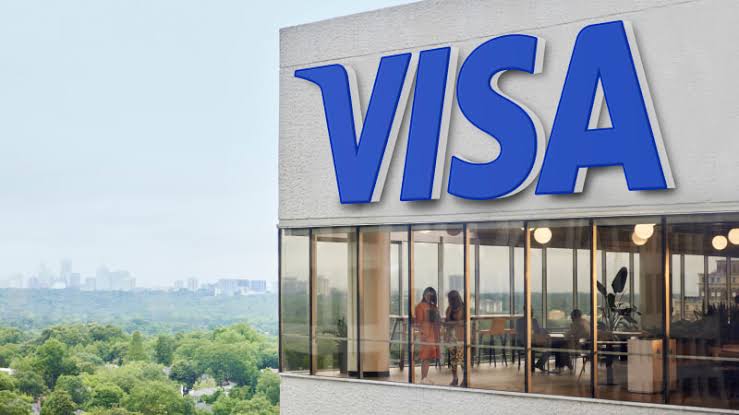
Karachi: Visa (NYSE: V), a global leader in digital payments, has released a whitepaper emphasizing the potential for digitizing SME payments in Pakistan. The report highlights that over $121 billion of SME B2B transactions are primed for digital transformation.
SME Digital Payments: A Game-Changer for Pakistan
Umar S. Khan, Visa’s Country Manager for Pakistan & Afghanistan, stated: “SMEs contribute 40% to Pakistan’s GDP and are key to job creation. However, many remain restricted by cash-based transactions, limiting efficiency and growth.”
He emphasized Visa’s commitment to advancing digital payment adoption, stating, “Our latest whitepaper showcases how commercial cards can streamline B2B payments, improving financial access and efficiency for SMEs. Collaboration with government entities, banks, and fintechs is crucial to driving this transition.”
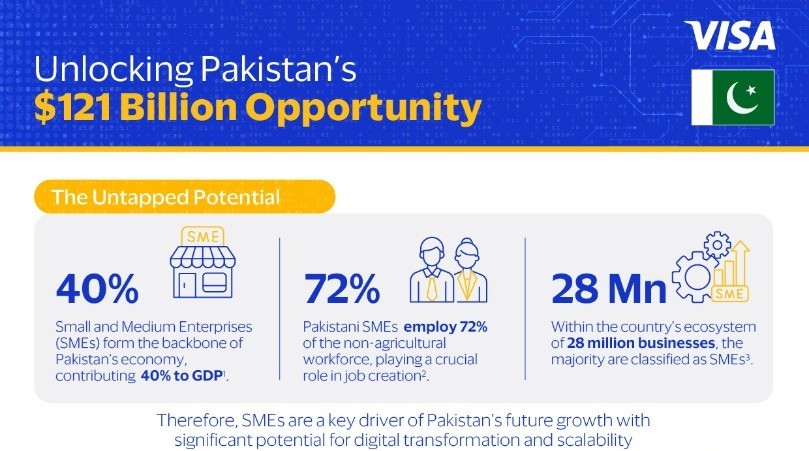
Pakistan’s Payment Landscape
According to the State Bank of Pakistan’s Payment Systems Quarterly Review (Q1 2025), 55.6 million payment cards were in circulation, with debit cards accounting for 88% of the total. Despite growing digital transactions, SMEs continue to face hurdles in transitioning from cash-based models. Challenges include limited awareness of commercial card benefits, complex application processes, and restrictive compliance requirements. Financial institutions also perceive SMEs as high-risk due to insufficient credit histories and collateral.
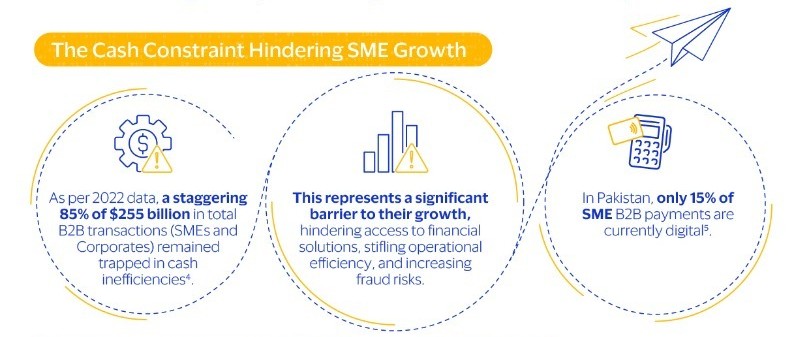
Key Findings from Visa’s Whitepaper
- 85% of Pakistan’s $255 billion B2B payments (2022) were cash-based, creating inefficiencies.
- Only 15% of SME B2B payments are digital, signaling an opportunity for growth.
- Most SME transactions remain cash withdrawals, despite widespread card usage.
- Agriculture, retail, and manufacturing dominate SME payables, while the IT sector processes significant international B2B transactions.
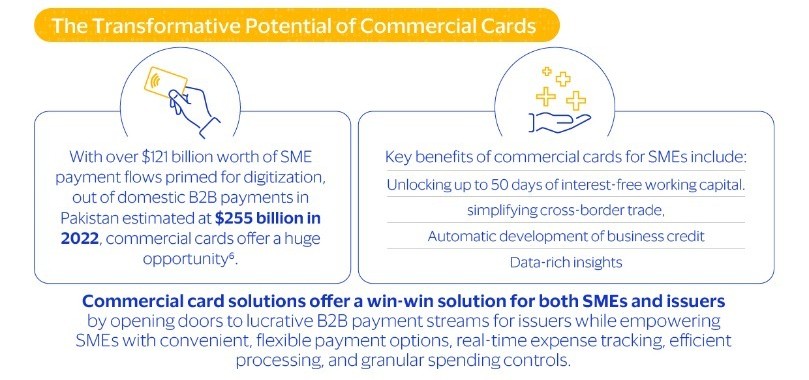
Unlocking the Potential of Commercial Cards
- Of the $255 billion B2B market, $121 billion is SME-driven, offering a major digitization opportunity.
- The top 8% of SMEs account for 60% of total SME payables, while smaller transactions total $6 billion.
- Commercial cards provide benefits like interest-free working capital, simplified cross-border trade, and business credit building.
- They also offer real-time expense tracking, improved financial control, and seamless processing.
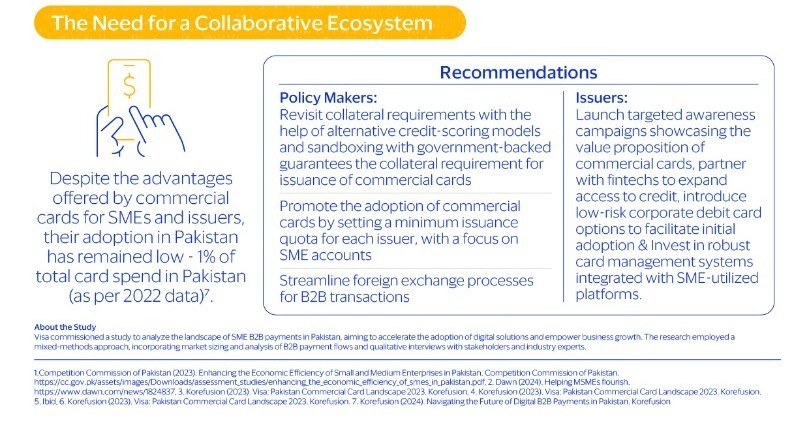
Collaborative Efforts for SME Digitization
Visa’s report calls for policy reforms and industry collaboration to drive commercial card adoption:
- Policy Recommendations:
- Reevaluate collateral requirements and introduce alternative credit-scoring models.
- Set minimum issuance quotas for SME commercial cards.
- Simplify foreign exchange processes by automating lower-value international transactions.
- Industry Initiatives:
- Develop integrated card management systems for SMEs.
- Launch targeted awareness campaigns highlighting commercial card benefits.
- Partner with fintechs to enhance SME credit access.
- Introduce low-risk corporate debit cards for easier onboarding.
Conclusion
Visa’s whitepaper outlines a roadmap for digital financial inclusion, emphasizing the benefits of commercial cards for SMEs. By shifting spending from consumer to commercial cards, issuers can unlock new B2B revenue streams while providing SMEs with essential financial tools.






















